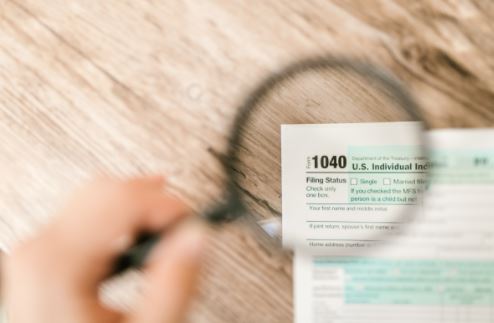As we have already commented in previous postsOn 25 May 2021, the draft Law on Measures to Prevent and Combat Tax Fraud was approved.
The coming law is a transversal regulation that modifies many aspects of the tax field. In this article we will analyse some of the major amendments to the General Tax Law, as well as other minor changes in customs matters, the Business Tax, etc.
1. Amendments to the General Tax Law
(i) Tax amnesties
Future governments are prohibited, by law, from approving any extraordinary tax regularisation mechanism, commonly referred to as ".tax amnesties"All of this is consistent with the declaration of unconstitutionality of the special regularisation of 2012 by the Constitutional Court's Ruling 73/2017.
(ii) Incentives for voluntary tax regularisation
The aim is to encourage taxpayers to to regularise their tax situation on a voluntary basis and to this end:
- If the taxpayer has applied for a unjustified refund y regularises on a voluntary basis and without prior notice, the same regime applies as for late returns, i.e. no late payment interest is due unless more than 12 months have elapsed.
- See reduces the system of late payment surcharges without notice, which shall consist of a surcharge of 1% for each full month of delay, with no interest accruing for up to 12 months.
It should be recalled that the current system provides for an automatic surcharge of 5% up to 3 months, 10% up to 6 months, 15% up to 12 months and 20% after more than 12 months, together with interest for late payment, a penalty regime that has often been criticised for its harshness and lack of modulation.
It is also important to note that this more favourable regime is to be applied retroactively to all surcharges levied prior to the adoption of the Law and which are not final.
- On the other hand, it regulates a situation that had been occurring a lot in practice: the taxpayer who regularises his tax situation in accordance with the criteria of the Administration that has regularised some tax aspects but for other periods.
For example, the frequent case of a tax inspection where it is determined that a tax benefit does not apply or that an expense is not deductible and the taxpayer, out of prudence, decides to regularise other settlements for periods not inspected at that time.
In these cases, according to the new law, no surcharges shall accrue for such subjects provided that (i) no penalty has resulted from the regularisation (ii) the taxpayer has not appealed the administrative regularisation and (iii) the voluntary regularisation has been carried out and paid in full within 6 months.
(iii) Tax procedure
- Initiation of the sanctioning file. Until now there was a period of 3 months after the tax assessment was issued for start the dossier sanctioning. This period is extended to 6 months.
- Suspension in economic-administrative proceedings: It regulates the possible inadmissibility of the application for suspension of debt with total or partial waiver of guarantee when "it cannot be inferred from the documentation provided that there is evidence of damage which would be difficult or impossible to repair or that there is an error of fact".
Since inadmissibility is tantamount to a failure to apply for suspension, in this case the enforcement period would start automatically. if the voluntary payment period has already expired.
This rule puts an end to the common practice of applying for suspension with waiver of security as a way of "buying time" in order to be able to obtain financing to pay the tax debt.
- It could also the enforcement period begins in cases of repeat submission of applications deferral/fractionation, compensation or suspension when previous ones have been refused.
(iv) Tax audits
- When a refund is granted in an inspection procedure, no interest for late payment shall accrue in favour of the taxpayer for the suspension time requested by the taxpayer during the procedure or for extensions of the deadline due to the late submission of documentation.
- On the other hand, it is determined that the communication to the provincial tax administrations affected by the possible regularisation suspends the computation of the maximum inspection period.
(v) Derivations of liability
A new offender category is included: the parent entity in the special scheme for the group of VAT entitiesThe parent company's tax consolidation regime is the same as that of the parent company in the corporate income tax system.
(vi) Reductions of penalties
The various reductions applicable to tax penalties are also modified upwards for encouraging compliance without litigation.
- The reduction for minutes with agreement from 50% to 65%.
- And, the reduction for compliance is maintained in 30%, but the reduction for prompt payment is raised from 25% to 40%.
Therefore, in cases where neither the penalty nor the settlement is appealed and the penalty is paid within the voluntary period, the effective reduction would be 58% of the initial amount.
(vii) Accounting, invoicing and management software
On the one hand, a new formal obligation is established for manufacturers and marketers of accounting, invoicing or management software so that certification of such software can be imposed.
In addition, in order to avoid parallel accounting, the following is regulated a new tax offence. On the one hand, it penalises the manufacture and marketing of ".dual-use software"that support the accounting, invoicing or management processes of persons or entities carrying out economic activities, insofar as it allows for separate accounting(a) do not reflect, in whole or in part, the recording of transactions made; record fictitious transactions or alter transactions already recorded; do not comply with technical specifications that may be established; or do not have the certification, if mandatory, of the systems
The penalty would amount to 150,000 euros, for each financial year in which sales have taken place and for each different type of software.
The possession of this type of software is also punishable by a fine of 50,000 euros for each year in which it is possessed.
(viii) Cash payments. Some limits are reduced to read as follows
- The limit on cash payments between entrepreneurs and professionals (B2B) from 2,500 to 1,000 euros.
- The limit for private individuals with fiscal domicile outside Spain from 15,000 to 10,000 euros.
- And, for payments made by the private individuals who are not acting in an entrepreneurial and professional capacity, the current limit is maintained. 2,500 euros.
(ix) Public list of debtors
The annual list of tax debtors, which is published, also undergoes modifications to (i) include jointly and severally liable persons also, (ii) reduce to €600,000 1 million) and (iii) clarifications and modifications are made to the deadline to encourage debtors to regularise their situation up to the moment of submitting claims against their inclusion in the list even if they refer to debts outstanding from the previous year.
Amendments in customs matters
- See increases joint and several liability of Article 87 of the VAT Act for the customs representative.
Until now, it was established that the customs representative was not liable for the debts owed to the importer as a consequence of actions carried out outside the customs premises, however, the law eliminates this mention and indicates that the liability will be enforceable when the debts "...".arising from customs declaration procedures or from the verification of customs declaration data."
However, the spirit of the law motivates that this possible liability subsequent to the release of the goods will only be enforceable against the responsible party when it derives from data or records related to the goods and declarations submitted in relation to the goods.
- See amends the case of subsidiary liability of holders of DDAs (warehouses other than customs warehouses) which will also include excisable goods subject to excise duties unless otherwise exempted (until now such goods have been excluded).
Until now, it was established that the customs representative was not liable for the debts owed to the importer as a consequence of actions carried out outside the customs premises, however, the law eliminates this mention and indicates that the liability will be enforceable when the debts "...".arising from customs declaration procedures or from the verification of customs declaration data."
However, the spirit of the law motivates that this possible liability after the release of the goods is only enforceable against the responsible party when it derives from data or background information related to the goods and declarations submitted in relation to the goods.
- And with regard to the liability of the direct representativeThe indirect representative's liability shall be equated to a certain extent with that of the joint and several liability of the indirect representative in such a way that the indirect representative is liable for the amounts of import duties and VAT not paid by the debtor or not collected with the execution of the comprehensive guarantee provided.
The direct representative is the one who acts in the name and on behalf of others, but provides his own guarantee, while the indirect representative is the one who acts in his own name and on behalf of the importer.
With this reform, the direct representative becomes jointly and severally liable over and above the amount of the security provided.
3. Most relevant amendments to the IAE
Refers to the consideration as a group of companiesThe Commission has not yet adopted a proposal for a directive on the determining the turnover of a trading groupThe taxable income tax liability is determined in order to determine the need for IAE taxation.
Notwithstanding the above-mentioned changes, the Anti-Fraud Prevention Act also introduces minor changes to land registry, excise tax and gambling regulations.




